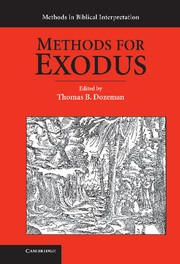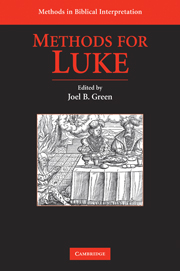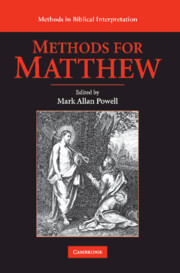Refine search
Actions for selected content:
3 results in Methods in Biblical Interpretation

Methods for Exodus
-
- Published online:
- 05 June 2012
- Print publication:
- 08 March 2010

Methods for Luke
-
- Published online:
- 05 June 2012
- Print publication:
- 22 February 2010

Methods for Matthew
-
- Published online:
- 05 June 2012
- Print publication:
- 13 July 2009
